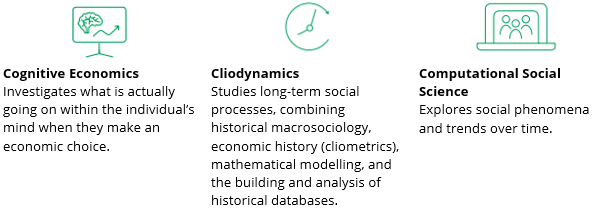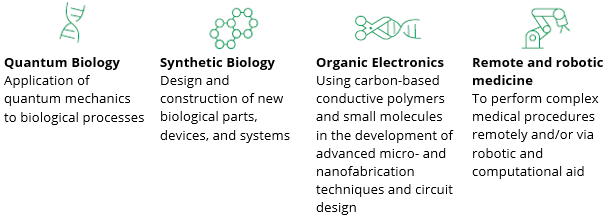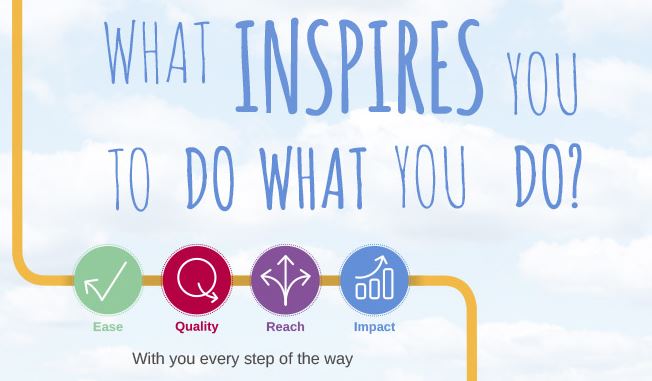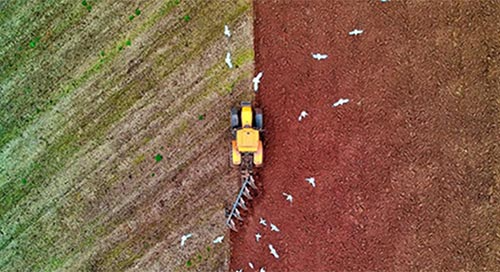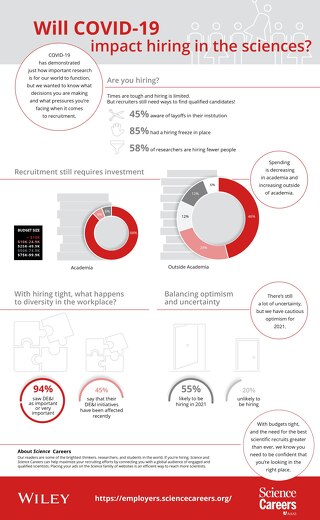an-undisciplined-view-of-the-future
July 29, 2021
At the dawn of civilization, science was born from questions to satisfy curiosity, find the meaning of life, help us survive, and do more with less. In breaking down these big questions, disciplines emerged and proliferated.
We seem to have come full circle and new ‘big questions’ surround us, such as climate change and clean energy; food production, safety and security for our growing population; pandemics; an array of inequalities; forms of addiction, mental health problems and chronic diseases.
Much research funding from the largest funders such as UKRI, NIH and the EC (via Horizon Europe) is now focused on aligning with the UN’s Sustainable Development Goals. With this change, key funders hope to address the issue of marrying the disciplinary approach prevalent in academia with interdisciplinary problems.
Einstein said, “We cannot solve our problems with the same level of thinking that created them”, and we argue that to solve these ‘wicked’ problems, interdisciplinary research is a necessity rather than an option, as is the emergence of new solution-focused disciplines. When we need a new theory or hypothesis, we cannot start from a traditional disciplinary position.
To begin with, we need to integrate Social Sciences as an essential aspect of solving these problems. It is a cornerstone of working on complex interconnected social or cultural issues such as poverty and hunger, education, climate change and pandemics. Tackling the complex problem of climate change for instance, will require natural scientists, engineers, and social scientists to collaborate. While COVID-19 showed that the natural sciences are now advanced enough to create a vaccine in nine months, without social sciences, the delivery of the vaccines faces immense problems in logistics of public health, economics, politics, and informatics. The failure of Track and Trace in the UK due to a centralised approach that cut out local public health directors is a chastening example. Research on vaccine distribution should have started at the same time as research on the vaccine development.
As Malcolm X said, “The future belongs to those who prepare for it today...” so we are using our crystal ball to explore the future and imagine what it might bring.
The importance of the social sciences
Areas of research that focus on society will be crucial in making progress on these problems, so we expect them to grow and play a larger part, some key examples being:
Understanding our minds
Many complex challenges have a lot to do with the brain and behaviour, so we foresee growth in areas such as cognitive neuroscience and behavioural neuroscience (a blend of neuroscience, functional anatomy, psychology, physiology, and brain imaging). Other fields in this area that will likely play a larger role, several of which have prominent social science aspects, are: Neuroethics, Behavioural Genetics, Affective Science, Decision Making and Human Computer Interaction.
Climate change and its consequences
Climate change is reducing the agricultural productivity of some zones of the Earth while our population continues to expand. How to farm on lands we haven’t used before, make more use of less space, or find new food sources will become increasingly important. Examples of areas we expect to grow in prominence are hydroponics, robotic systems and AI in farming, engineered crops or food types (both crops and cultured meat), and substitute and alternative foods (from vegan meat substitutes to research into insects as food). Nutrigenomics may also play a role in the design and personalised selection of foods to suit medical needs.
Searching for a new home?
If we and our governments take too long to act, we may sadly find ourselves more actively looking for potential new homes. As a result, research into exo-meteorology, exo-oceanography and exo-geology (the study of natural processes on other planets) will grow, along with terraformation (how to make a near-habitable planets or moons habitable). In addition to identifying a new home, we will need research to solve getting there in a feasible amount of time, with all the people and materials we need.
Redefining life
As Rita Levi-Montalcini said, “…don't fear difficult moments. The best comes from them”. So let’s leave that rather bleak scenario and turn to a hopeful view of a brighter future fuelled by technological innovation and emerging topics. Humans will certainly need help in solving several problems that will depend on the delivery of the promise of informatics, nanotechnology and/or AI. Some fields where we see promise are:
Thinking about emerging areas, a great deal of recent work, and sometimes eye-watering amounts of Silicon Valley-derived funding is focused on maintaining, extending, and building new life, particularly on longevity medicine and aging research, but with other interesting examples including:
Working together is the key
We believe the current drive to fund research based on global problems and questions will encourage collaboration between specialties and disciplines, moving away from a historically discipline-focused consideration of the relevance of grant applications.
But traditional disciplines will remain, as Mary Parker Follett said: “Unity, not uniformity, must be our aim. We attain unity only through variety. Differences must be integrated, not annihilated, not absorbed.” Everything we see so far fills us with excitement about what can be achieved through such collaborative research.
This piece is part of our series, What does the future hold and how will we get there?
To read the full whitepaper, see below.

